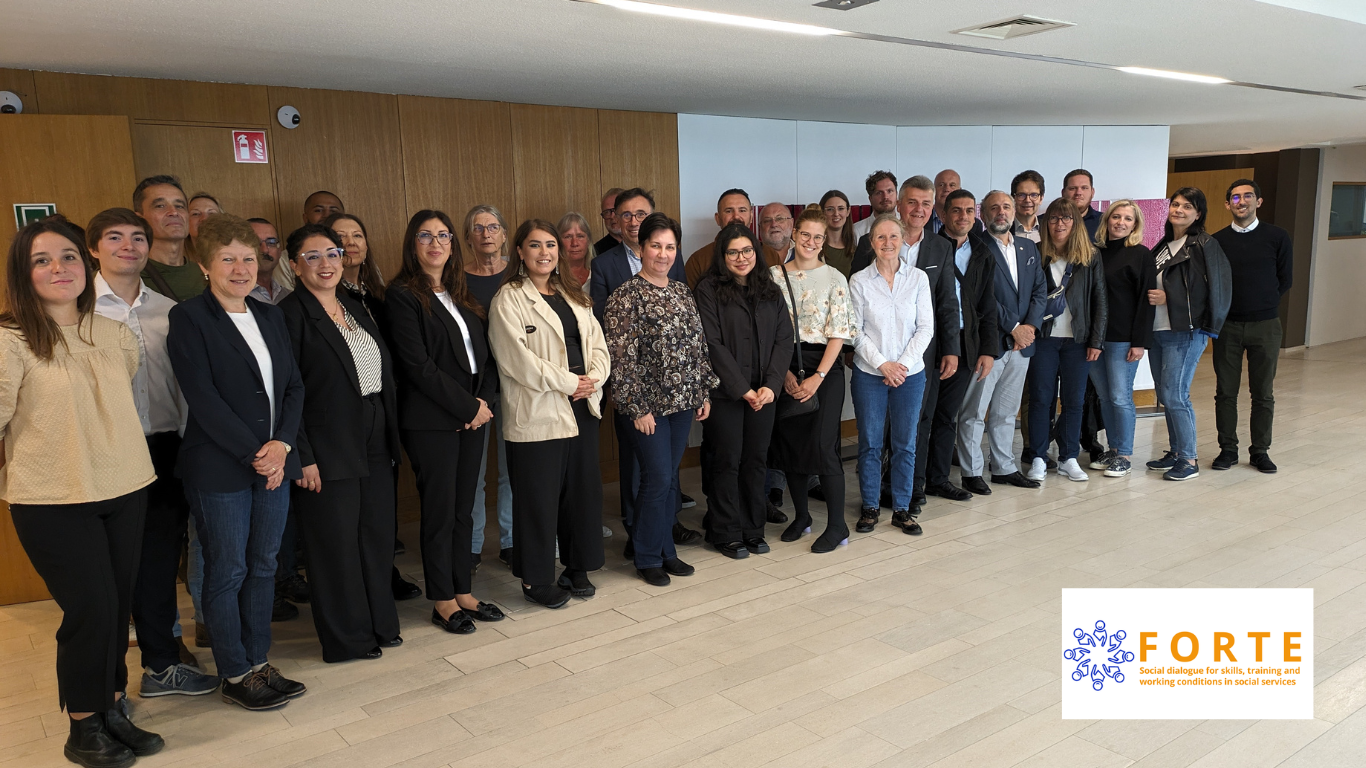Skills, training and working conditions of the social services workforce – FORTE Final Conference

On 29 May, the Social Employers and EPSU, supported by Nexem, hosted the final conference of the FORTE project in Brussels. The event brought together 50 participants from EU and national level to discuss skills, training and working conditions of the social services workforce.
The first part of the conference was an opportunity to look back at the main outcomes of the two-year project. Samantha Howe, EPSU, presented key points from the report “Evolving job profiles, skills and training needs in social services”. The research examines the effects of changing social care models, evolving user needs, and the increased use of digital tools and technologies on skills and training needs of the social services workforce. An extended summary of the report is available.
Sylvain Renouvel, Social Employers, provided an overview of good practices on the improvement of working conditions, gathered in the project. Eighteen good practices from 10 countries are grouped under five categories, including the assessment of working conditions, physical risk prevention, work-life balance, supporting staff, and skills and training.
Employers representatives from ActiZ (NL), COPAS (LU), Agenzija Sapport (MT) and EPSU affiliate Kommunal (SE) also presented current skills and training initiatives at national level.
In the second part of the conference, participants discussed strategies for skills development and potential content for a future European Strategy on Skills in Long-Term-Care, through workshops.
Ivana Davidovska from EASPD set the scene by introducing the newly launched Care4Skills project. The project aims to help LTC workers to acquire new skills allowing them to provide person-centred care and use digital technologies to enhance care quality and support across Europe.
Participants engaged in three different workshops; on general skill needs, skills related to digitalisation and to person-centred models of care. The three groups highlighted the need to consider employers, employees and service users’ needs and rights when developing new skills and training programmes. Both flexibility and effective communication between management and workers were highlighted as crucial. The need to develop cross-cutting skills, collaboration and openness to change were also highlighted.
Adam Rogalewski, EPSU, concluded by highlighting the importance of skills development for employers, employees and the advancement of the sector, when it comes to demographic change, climate change and digitalisation, as well as new care models.
The project outcomes will serve as a basis for further discussion via the Sectoral Social Dialogue Committee for Social Services.
Supporting documents
- Agenda
- Presentations
- Report on Evolving job profiles, skills and training needs in social services
Extended summary report in: English, French, German and Spanish
